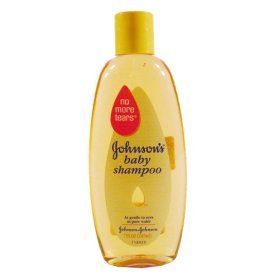Group Blasts J&J for Baby Shampoo Cancer-causing Chemical

Johnson & Johnson should remove carcinogenic chemicals from the original Johnson's Baby Shampoo sold in the United States, Canada and China, consumer's health advocates urged Tuesday.
Non-for profit group Campaign for Safe Cosmetics said today that more than two and a half years since it first complained about the ingredients, Johnson & Johnson is still making its original baby shampoo with quaternium-15, a chemical preservative that kills bacteria by releasing formaldehyde, a known carcinogen.
“Clearly there is no need for Johnson & Johnson to expose babies to a known carcinogen when the company is already making safer alternatives. All babies deserve safer products,” said Lisa Archer, director of the Campaign for Safe Cosmetics at the Breast Cancer Fund, in a statement.
Johnson & Johnson said Monday that it is no longer introducing new products with formaldehyde-releasing preservatives and has reduced its use of the chemical by 60 percent in the U.S. market and 33 percent globally over the past few years.
“We know that some consumers are concerned about formaldehyde, which is why we offer many products without formaldehyde releasing preservatives, and are phasing out these types of preservatives in our baby products worldwide,” said Johnson & Johnson in a statement.
Formaldehyde was recently added to the U.S. government list of known human carcinogens by the National Toxicology Program, under the Department of Health and Human Services, according to the Campaign for Safe Cosmetics. Formaldehyde and quaternium-15 are also potent allergens that can trigger rashes and other skin inflammation problems.
According to a peer-reviewed paper in the Journal of the Dermatology Nurses’ Association, quaternium-15 is “the most sensitizing formaldehyde-releasing preservative and has been repeatedly shown to be a strong allergen that can cause contact dermatitis.”
In response to the initial consumer demand in 2009, Johnson & Johnson launched a new “natural” version of baby shampoo that does not contain chemicals associated with formaldehyde or 1,4-dioxane.
But health advocates insist that the original Johnson’s Baby Shampoo, which is priced at about one-half the cost of the new “natural” shampoo, needs to be reformulated in the U.S. market.
Published by Medicaldaily.com



























